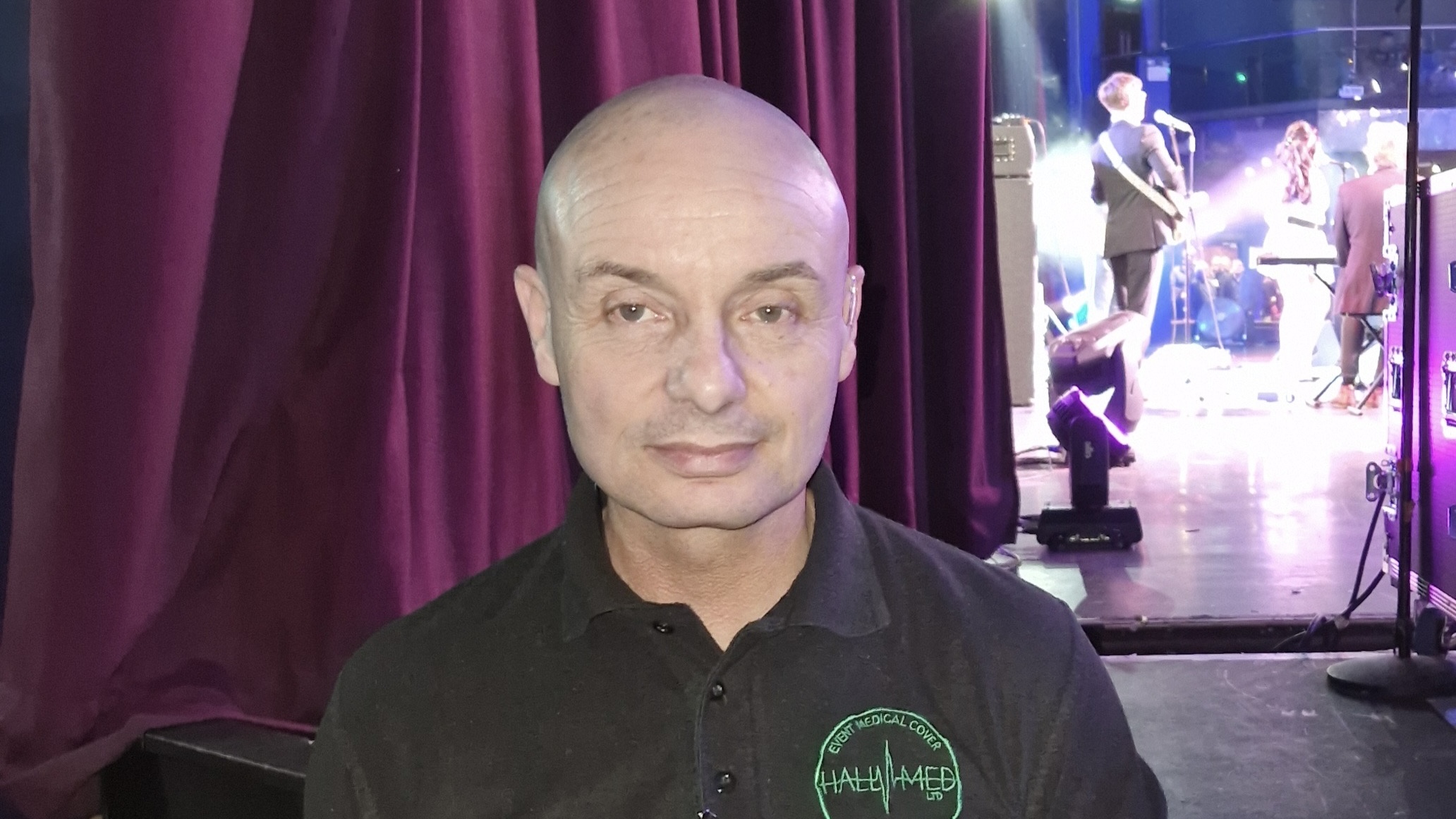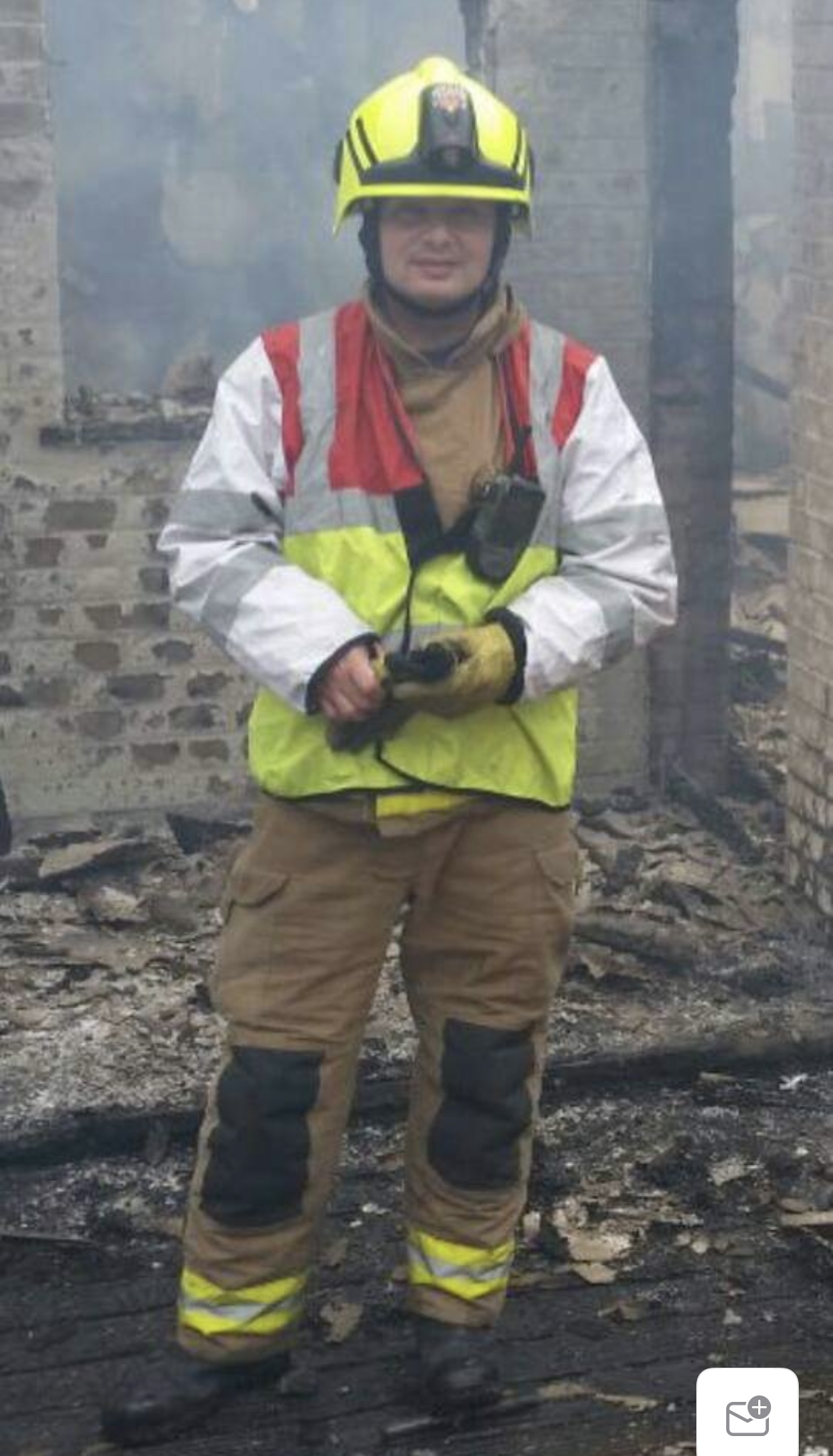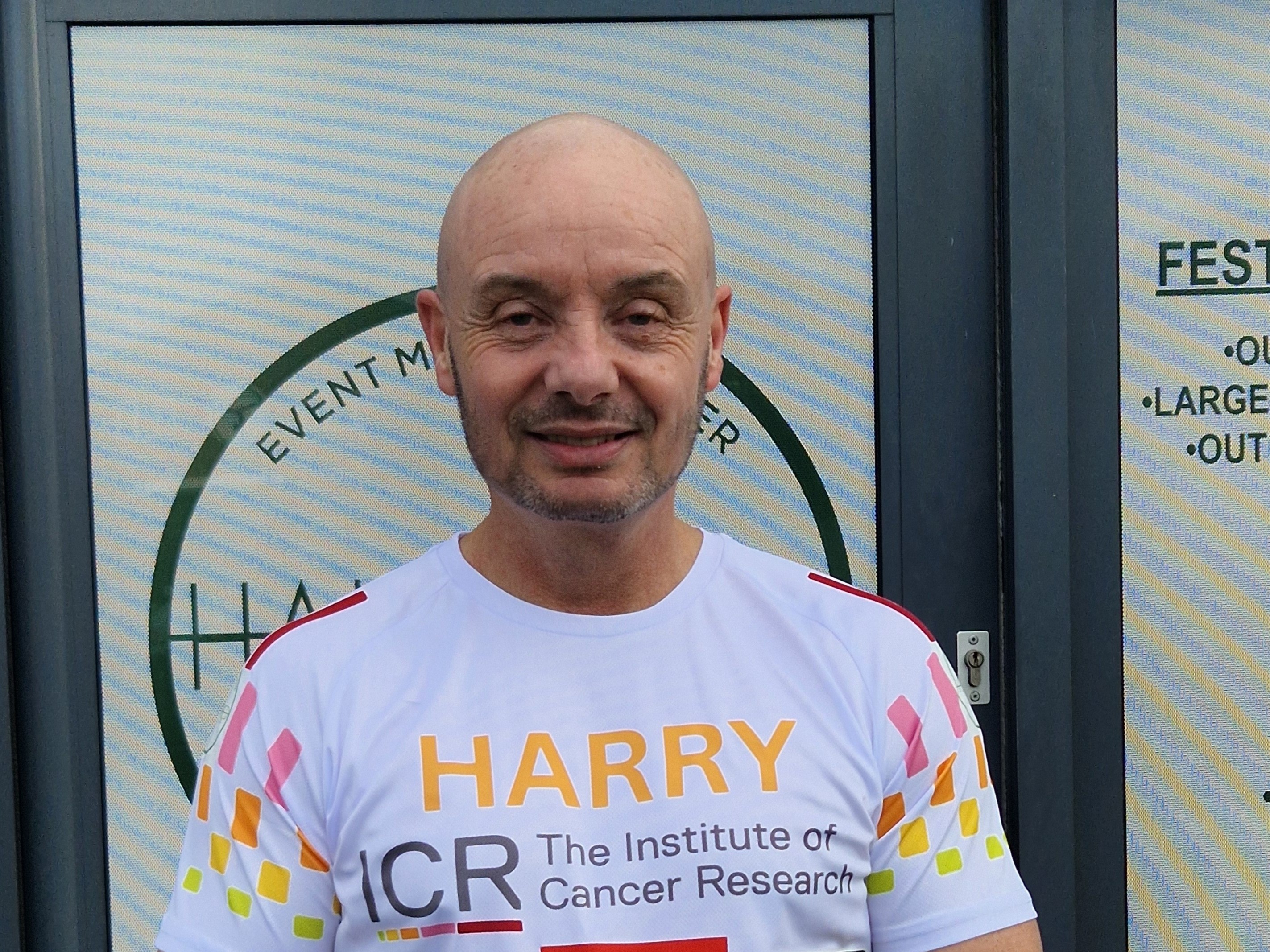
Image: Harry Hall. Credit: Harry Hall
When I found the lump in my neck, I was working outside at a lot of festivals, so I thought maybe it was an allergy to the grass. Like a lot of people, I left it for a couple of months, thinking it would go away. It was my wife, Lisa, who persuaded me that I should get it checked out.
I had worked for six years in the Royal Navy followed by 27 years in the fire service, and also spent time in the ambulance service. Now I run my own event medical company. I was fit and healthy, and I’m knowledgeable about medical issues, but I never thought the lump in my neck would be cancer.
I went to the GP and saw the practice nurse who sent me for some blood tests. From there I had a biopsy on the lump and was told it was neck cancer. They said it was a secondary cancer that had spread from somewhere else. Initially they weren’t sure where, so I had my tonsils taken out. Then it was revealed to be tongue cancer. I was devastated and it felt like a death sentence. My dad died of lung cancer a few years ago and that had been tough.

Image: Harry worked in the fire service for 27 years. Credit: Harry Hall
Research into treatments has allowed me to live
I had a course of 30 radiotherapy and six chemotherapy sessions. The treatment was quite severe, and I couldn’t eat or drink. I ended up with a tube in my stomach which I was being fed through. It smashed me. I ended up with blisters on the outside of my neck, I couldn’t swallow and I could hardly talk.
But with the support of the medical teams and my family, I got through to the other side. My treatment finished just before we went into lockdown in 2020. With my low immune system and the lockdown regulations, my kids couldn’t come to visit and it was hard. But we had great news just two months later, that there was no trace of cancer. It’s only through research into cancer that these treatments exist that have allowed me to live.
When cancer hits, it affects the whole family. My wife Lisa is a paramedic, she’s used to dealing with people with cancer. Throughout my treatment she cared for me and remained strong, but once I got told there was no trace of cancer, it all came to the surface for her. Lisa ended up having to have counselling and some time off work. People don’t realise how hard it can hit relatives.
Image: Harry wearing his ICR vest. Credit: Harry Hall
It's vital to find new and less traumatic treatments
While I’ve still got a while to go until I’m in remission, I want to raise funds to support others going through what I’ve been through. Research into cancer is vital to find new and less traumatic treatments. My treatment means I can no longer experience sweet tastes and I’ve got no saliva, but I consider myself lucky to be here. That’s why I’m supporting the ICR by running the London Marathon. Anything that’s going to make cancer treatment more effective and kinder needs to be done.
I’ve raised almost £2,000 so far from family and friends donating, including my friend, TV and radio presenter Pat Sharp. Local businesses have also sponsored me to put their logos on my running shirt.
I’ve run the London Marathon twice before, but this is the first since my cancer treatment. I’m ten years older since my last marathon, so it’s going to be harder. But I’m convinced the great atmosphere will propel me around the course. I’m also running with my son Tom, who is based in Cyprus with the RAF, so it’ll be a special day.
To support Harry, please visit his fundraising page: www.justgiving.com/page/harry-hall-1690362024529
